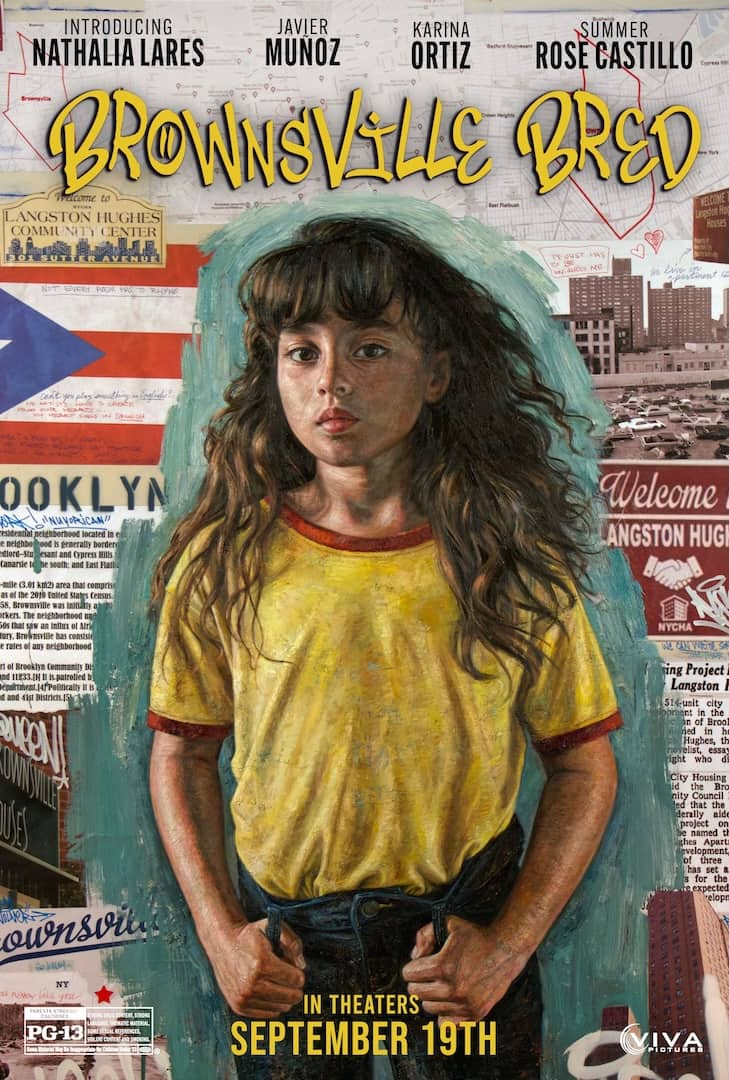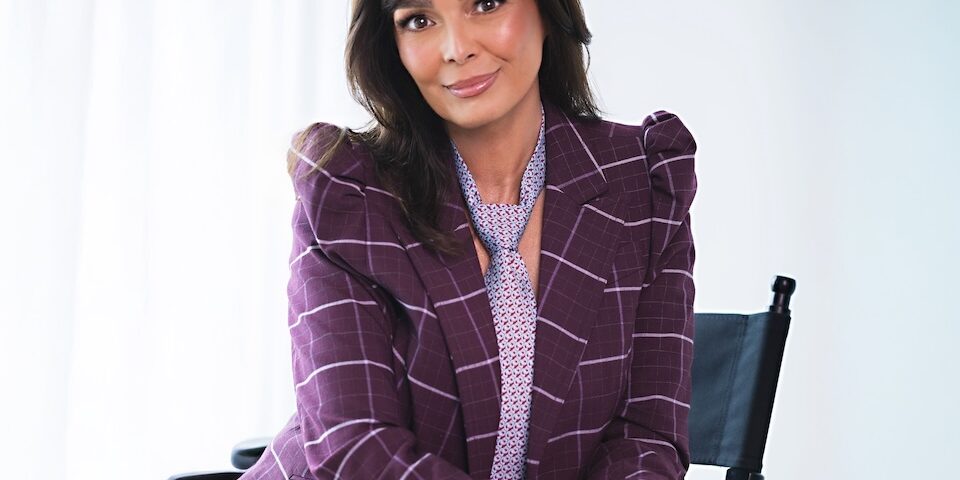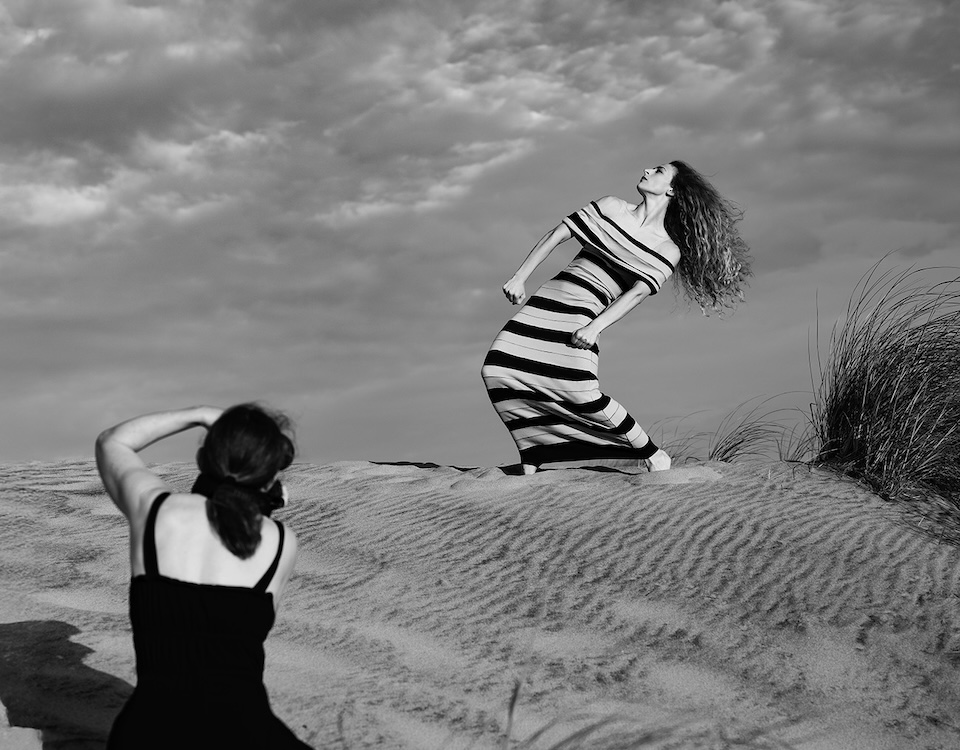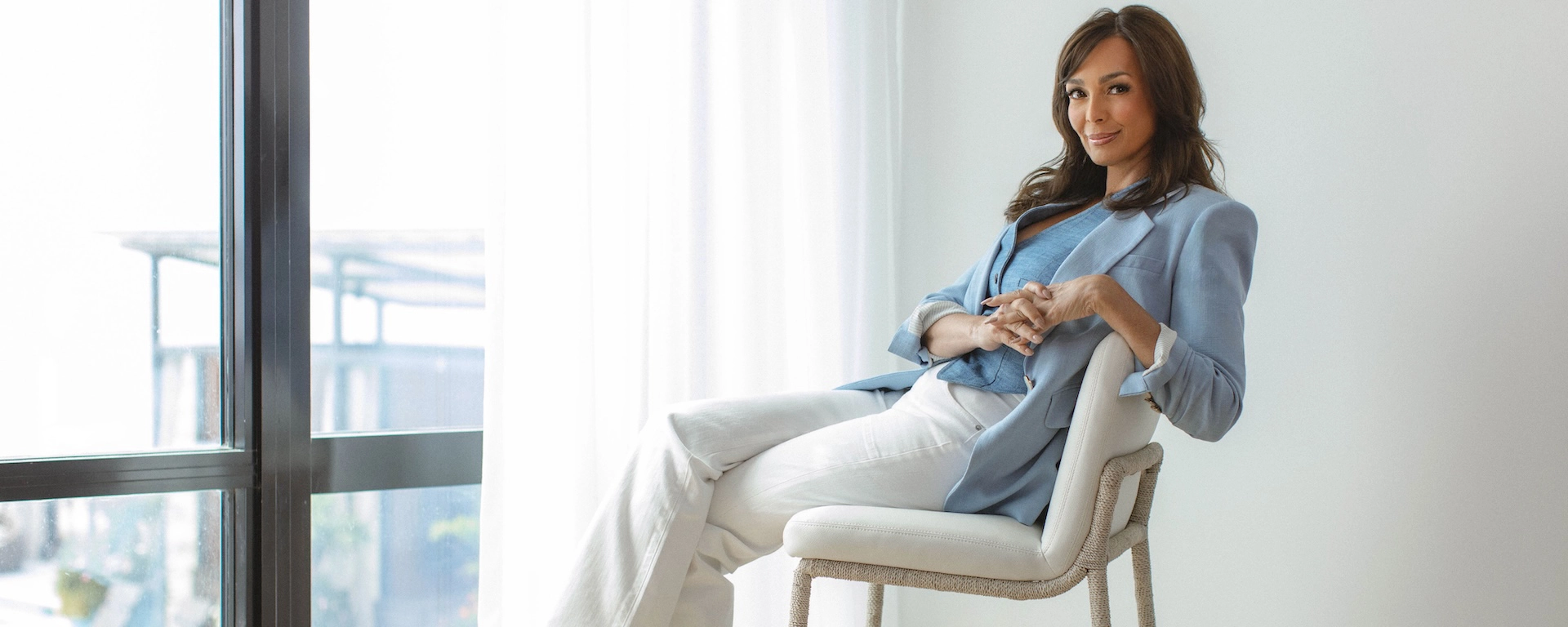
BROWNSVILLE BRED
THE UNSTOPPABLE VOICE OF ELAINE DEL VALLE

From the streets of 1980s Brownsville to theaters nationwide, Elaine Del Valle transforms her childhood into a powerful film about resilience, family, and the courage to claim your voice.
PHOTOGRAPHY BY ZALO CASTILLO

“I WANT THEM TO FIND BEAUTY AND STRENGTH IN CULTURE, MUSIC, AND STRUGGLE. BROWNSVILLE BRED IS ABOUT VALUING THE PEOPLE AND PLACES THAT SHAPE US, EVEN WHEN THEY’RE MESSY.”
ELAINE DEL VALLE, AWARD WINNING PLAYWRIGHT, DIRECTOR, PRODUCER, SCREENWRITER AND CASTING DIRECTOR
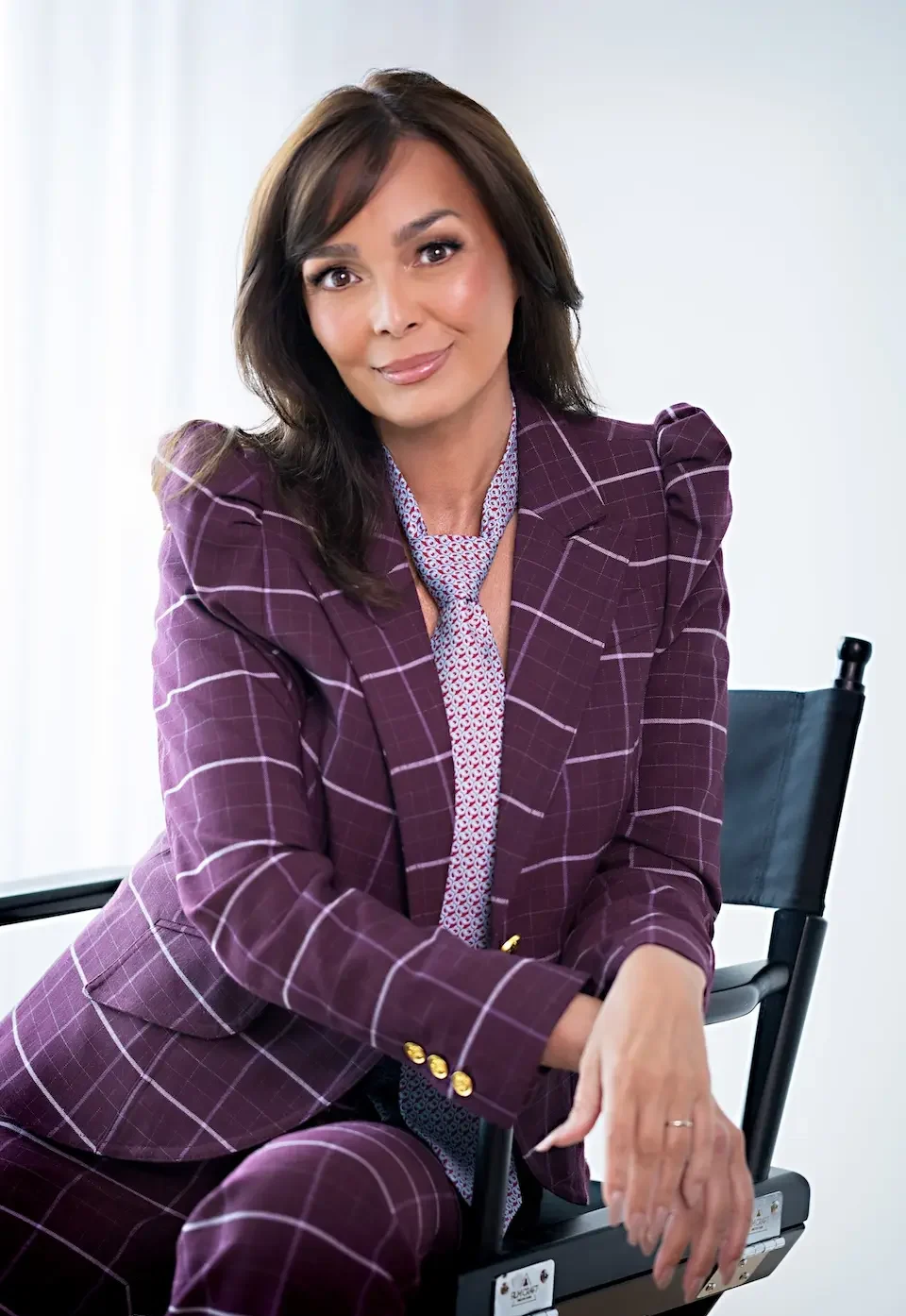
Some stories are too personal to stay on the page. For Elaine Del Valle, storytelling was never just an art; it was a matter of survival. Brownsville Bred has been a lifetime in the making: a love letter to the neighborhood that raised her, a reckoning with the father she both adored and resented, and a tribute to the humor and grit that carried her through. It is also an act of honoring a father whose dream of becoming a salsa musician was shadowed by struggle, a rhythm of both joy and loss that runs through the film.
The daughter of Puerto Rican parents, Del Valle came of age in Brownsville, Brooklyn, a community often reduced to its struggles but alive with music, flavor, and fierce resilience. She has described herself as many things at once, urban, American, Latina, Puerto Rican, daughter, and mother, and the film reflects that layered identity. She first told her story on stage, then in a novel, then in a short film that won SXSW’s Audience Award. Now, with Viva Pictures distributing in the USA, her debut feature, Del Valle brings that truth to the big screen for audiences everywhere.
Filmed with honesty and rooted in place, Brownsville Bred reveals the contradictions of adolescence: tenderness alongside turbulence, creativity inside chaos, pain intertwined with pride. In the end, it feels at once deeply personal and strikingly universal, a reminder that even the toughest beginnings can give rise to grace and a sense of hope.
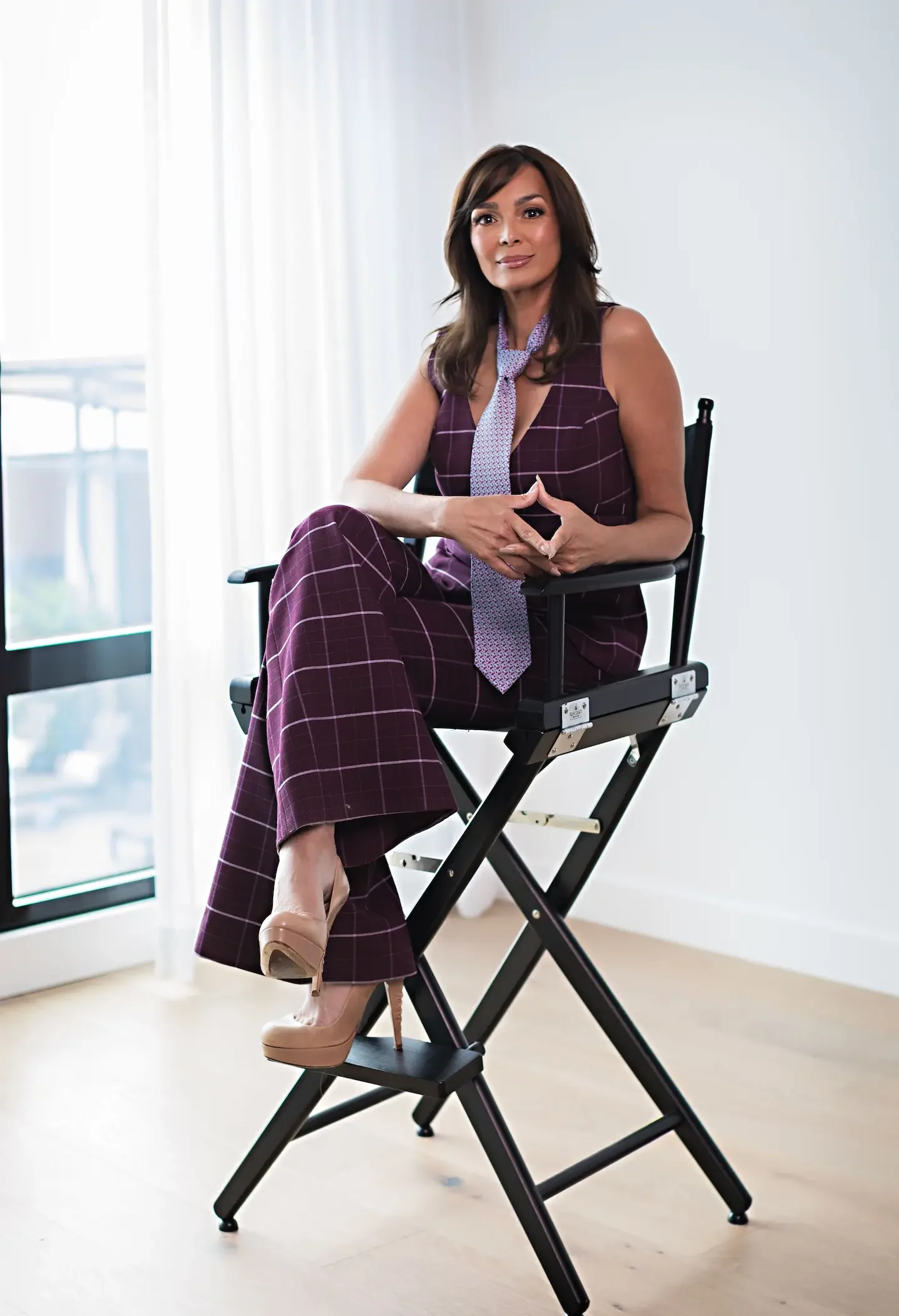
Brownsville Bred is unapologetically and proudly Latina. What do you hope audiences outside of that experience take away?
I hope they walk away with a renewed appreciation for their own families—especially the imperfect ones. I want them to find beauty and strength in culture, music, and shared struggle. Brownsville Bred is about valuing the people and places that shape us, even when they’re messy.
A special thanks to singer-songwriter Edwin Vázquez, whose original music represents Manny’s voice in the film and the soundtrack of my childhood.
Life in 1980s Brownsville was full of challenges. What joys, big or small, still shine brightest in your memory?
Even in the toughest times, joy had a way of showing up. I’ll never forget the winters when my entire family—my mom, aunts, and cousins—would form an assembly line in our tiny kitchen to make pasteles. We’d be hand-grating ingredients until our fingers bled, but we laughed, we sang, and we created something together. That act of family collaboration is what filmmaking feels like to me today—the joy of many hands and hearts building something that lasts.
Filming in Puerto Rico meant retracing your father’s roots. What did that journey unlock for you on a personal level?
Filming in Puerto Rico was emotional in ways I couldn’t have imagined. The crew embraced me like family, and their work ethic and positivity made me realize—this joy, this resilience—it’s part of our Puerto Ricanness. On the final day of shooting, after making call after call, I finally found my father’s grave. I stood there for an hour, acknowledging that I had just finished filming the story that honored him. It was surreal—like he was with me the entire time. That moment closed a circle I didn’t even know was open.
This film has already been celebrated at major festivals. What does that recognition mean for you and for Brownsville Bred?
The recognition is beautiful, but what fuels me most is the way audiences respond. People leave screenings telling me they feel proud, that they see their families, their inner child, their struggles reflected. That’s the recognition that matters most. Festivals helped shine a light, but it’s the audience who keeps the flame alive.
Your relationship with your father was tender, complicated, and raw. What did it open within you to bring him back to life on screen?
It opened forgiveness. My father’s addiction cast long shadows, but he was also a man of music, of joy, of love. Bringing him to life on screen meant honoring not only him, but all the artists whose dreams never had a stage. It was my way of saying: your art mattered, your joy mattered, and your love mattered.
Your father dreamed of making salsa music even as he battled addiction. How does that musical legacy flow through Brownsville Bred in rhythm, sound, or emotion?
Music is the undercurrent of the film—sometimes celebratory, sometimes aching, but always alive. My father’s dream of being a salsa musician lives in the rhythm of the story, in the way the songs carry both his yearning and his joy. His music is his legacy, and now it becomes part of mine.
You’ve described this project as part of your healing. How did telling it reshape the way you see your past?
When I began, I thought I was just telling my story. What I discovered is that the act of telling it is healing not just for me, but for others. People come up to me after screenings with tears in their eyes, saying, “That’s my story too.” It taught me that the pain we carry can become a bridge, and that’s what makes it worth sharing.
“BROWNSVILLE BRED IS MORE THAN A FILM, IT’S AN EXPERIENCE THAT WILL STAY WITH YOU LONG AFTER THE CREDITS ROLL.”
What was it like to watch young actresses embody your childhood, to see your younger self reflected back at you?
Watching Summer Rose Castillo and Nathalia Lares step into my childhood was both surreal and moving. I guided them with my lived experience, but I also wanted them—and all of my cast—to be fully seen for the extreme stakes their characters faced. Roles like these aren’t usually written for Latino actors, and being able to write them, direct them, and watch them shine was the greatest gift. It was my way of ensuring that our talent has space to show the full humanity of what it means to be Latino. This film shows a young Latina not just surviving her circumstances, but rising as the hero of her own story — a reflection we rarely see on screen. Placing her at the center reminds us that our stories matter, our voices matter, and our dreams belong on the big screen.
Where did you first find the belief that your voice and your truth deserved to be heard?
That seed was planted by my acting teacher, Wynn Handman. He stopped me one day and said, “Your story needs to be told.” I started with a single scene. That one scene became my one-woman show. The audiences that kept coming, the way they leaned in and told me they felt reflected—that’s when I knew. My truth had value because it was also theirs.
Now that Brownsville Bred is out in the world, what promise are you making to yourself for the next chapter?
I promise myself to keep writing Latina protagonists. Every script I write—whether it’s the legal dramedy I based on my mother’s life or the thriller I’m developing about a charity with unexpected twists—centers a Latina voice. That’s non-negotiable. As long as I’m deciding the storylines, Latinas will be at the center.
Brownsville Bred has lived in you for years. What first inspired the story, and why did it demand to be told at this time?
My journey began as an actress, frustrated by the lack of complex roles for Latinas and by an industry that often misunderstood our lived experiences. I started writing scenes based on my childhood in Brownsville, Brooklyn, just for class. But my acting coach, Wynn Handman, insisted, “You must keep writing this.”
Those scenes became a one-woman play that went on to break records at NYC’s legendary Nuyorican Poets Café, tour nationally and land an Off-Broadway run. The New York Times called it: “From Girlhood Trials to Onstage Triumph.” The emotional response to the play proved this hyper-specific story had a universal impact. That led me to direct short films—building my craft year by year, all with the goal of one day adapting Brownsville Bred into a feature film.
For someone unfamiliar with Brownsville, how would you describe why this isn’t just a film to watch, but a story to be lived, felt, and experienced?
Brownsville Bred is more than a film—it’s an experience that will stay with you long after the credits roll. It’s based on my childhood; on the surface, it’s a coming-of-age story about a New York Puerto Rican girl growing up in 1980s Brownsville, Brooklyn. But underneath, it’s a universal story about family, community, identity, resilience, and love—the things that shape us all, no matter where we come from. At its core, it’s about complicated relationships. The love of a father for his daughter and the daughter’s love for her father, the need of a mother to protect her child, and the way children want to belong and inevitably test boundaries and stumble into trouble. It’s about the hope parents carry—that they can impart enough wisdom onto their children so they won’t repeat their mistakes. Those are truths every family can recognize.
One of the most powerful parts of sharing this film has been watching audiences experience it together. Sitting in a theater with strangers from all walks of life, I’ve seen people cry in unison, cheer in unison, and laugh together at the nuances of girlhood or the awkwardness of being taught to drive. Those milestones don’t have cultural boundaries—they remind us how much we all have in common. The film bridges divides and affirms that we are not so different from one another. On the big screen, the music, the performances, the raw honesty, and the emotional power of this story create a shared experience—one that celebrates culture while reminding us of the value of family, the strength to rise above our circumstances, and the beauty of owning our stories. That’s why Brownsville Bred isn’t just a movie to watch—it’s a story to live through and feel.
Elaine Del Valle’s award-winning film Brownsville Bred is now playing in select theaters. Now showing at AMC Empire 25 in Times Square and select Theatres nationwide.
Check local listings and get tickets here: Fandango Showtimes
